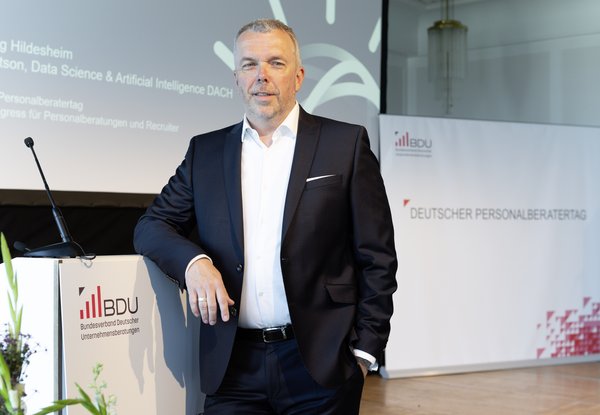– At the BDU's 23rd German HR Consultant Day, experts discussed the earn-out model and its chances of success.
5 tips on how to make the earn-out model work when selling SMEs
"If the company's value hinges on industry expertise and customer access, acquirers are looking for more future security"
Many SMEs are in danger of not making the leap to the next generation. More and more often, the sale fails due to the currently increasing risks of company valuations. At the BDU's 23rd German HR Consultant Day, experts discussed the earn-out model and its chances of success.
"This year alone, up to 230,000 medium-sized companies are up for sale. Many have to give up their business because the handover fails due to a lack of an appropriate purchase price," says Arne Adrian, Managing Director of the PAWLIK Group and Chairman of the Personnel Association in the Federal Association of German Management Consultants (BDU). The seller side expects a good price for their life's work. In reality, this idea often fails because a life's work is only relevant in retrospect and not in outlook. The earn-out model is therefore increasingly proving to be a solution, Adrian explains.
An earn-out clause stipulates that a part of the purchase price is not to be paid when the shares are acquired, but only later, when the company has achieved certain goals. Earn-out is actually a successful model from the start-up scene. But the risks for buyers are similar. "We are experiencing a lot of uncertainty about the future earning power of companies. This is especially true when success is closely linked to the founder," explains Arne Adrian. With the earn-out model, founders stay with the company for another three to five years, which avoids the problem.
Personnel consultancies profit from Earn Out
Many recruitment consultancies are also currently feeling the pressure to find successors. "Earn Out is interesting for buyers of medium-sized recruitment consultancies because the success of the company depends on the consultants with their client contacts and their market knowledge," says Arne Adrian. By retaining the old management for the time being, the risk of top performers quitting because they no longer feel connected to the company is reduced, the 55-year-old explains.
In order for the earn-out model to succeed, Arne Adrian recommends counteracting possible conflicts between the old and new management or staff. "Takeovers often fail because of the managers' inability to respond to the individual needs of the employees," the Berliner clarifies and gives five tips for the successful implementation of the earn-out model.
5 tips on how to make the earn-out model a success
- Communication: First, the new and the old management should talk openly about their mutual expectations and the objective. Ideally, the results should be recorded in writing so that there are no misunderstandings.
- Clear distribution of roles: Who does what? In order to avoid conflicts of interest and competence, roles must be clearly defined. For example, it can be decided that the new management will take care of new customer business, while the old management will look after regular customers.
- Joint strategy: What is to be achieved in the next few years? For these questions, buyer:in and seller:in should define a joint approach. This makes it easier to achieve the economic goals of the earn-out.
- Team building: In order to bring two companies together successfully, two "teams" must become one. Regular exchanges or team-building events ensure that the employees develop a common corporate culture.
- Willingness to learn: just because something is new, it is not automatically bad. Old and new management can learn from each other, for example in terms of sales ideas or error culture.
About the PAWLIK Group
The PAWLIK Group is one of Europe’s leading management consultancies for implementing strategies that deliver results today – and tomorrow. PAWLIK puts people first in all that it does. The group’s offerings include human resources and organizational development, HR consulting and support in navigating digital transformation processes. Founded by Joachim Pawlik in Hamburg in 1996, the company features more than 300 consultants and employees at 15 international locations who leverage their expertise in helping clients worldwide meet their challenges. Through its ventures and investments in innovative service providers, the PAWLIK Group regularly extends its range of services with relevance for digital transformation processes. PAWLIK takes an integrative, systemic approach to consulting that is process-oriented.
PRESS CONTACT
PAWLIK Consultants GmbH
Kristina Behrend
Astraturm • Zirkusweg 2
D-20359 Hamburg
T +49 (0)40 / 53 28 50 13
E presse@pawlik.de
For us, “making it happen” means helping you turn your company goals into results. We transform organizations into coherent systems and develop the personal potential of employees. We use the latest scientific research results as a basis for this.
Each year, we invest five percent of our revenue to learn about learning. We are happy for our clients, partners, and other interested persons to share in our findings.
We would therefore like to ask for your consent to us contacting you with up-to-date information about our services and specialties.
